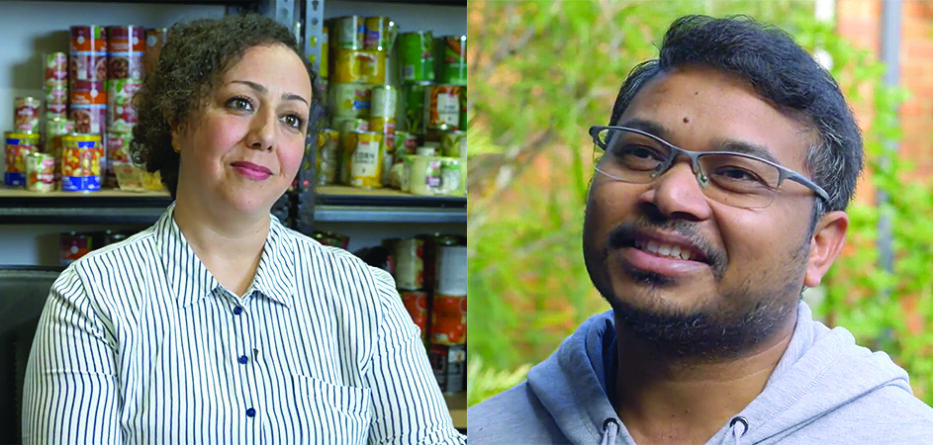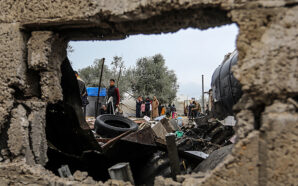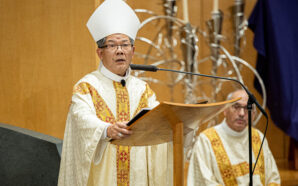In a time where the displacement of people due to conflict and persecution continues to rise, vital programs providing support to forcibly displaced persons highlights the fundamental need for a refugee support service that acts as a symbol of hope for the people it serves.
Whether it’s an individual seeking asylum from a dangerous situation, or a family facing hunger due to limited work permissions, compassionate organisations like Jesuit Refugee Service (JRS) and the House of Welcome become the essential lifelines for these people in need.
“I visit every week. We live on this food because we have work limitations and my wife has medical conditions,” says Aneesh – a refugee now settled in Wentworthville with his wife and five-year old son.
House of Welcome the only hope
Like most refugees, Aneesh acknowledges that if it weren’t for the House of Welcome food bank at Granville – particularly with the current rising cost of groceries – his family would not be able to eat.
“We don’t have any other options to get food. Only the House of Welcome – it’s our only hope.”
Someone who understands the struggle of refugee life in Australia from her own experience is Zahra, a volunteer at the JRS food bank in Parramatta.
Food donations the only option for some
“People come to the food bank because they need food,” she admits, lamenting on her struggles as a refugee who also once had no way of getting enough food. “They don’t have any government support and it’s the only option for them.”
Dedicating herself to the plight of displaced people in vulnerable positions is Maeve Brown – Service Delivery Manager at JRS, who also acknowledges the gaps in the Australian government’s policies regarding visas.
“People on bridging or temporary visas are not eligible for Commonwealth support, which means there are no Jobseeker payments, no NDIS, no childcare subsidies,” she highlights. “People need all the support they can get in times of crisis.”
It is hard to ask for help
Due to experiencing life as an asylum seeker first-hand, Zahra is empathetic to the clients who use the food bank service and is committed to putting their minds at ease.
“It is hard to ask help from others… But when you don’t have another choice, you are forced to ask for help.”
The effect of the House of Welcome and JRS programs have certainly had a poignant effect on the clients they serve.
“We’re very thankful to House of Welcome,” smiles Aneesh. “Because we have some work limitations, we don’t have much income. We need to pay the bills – gas, water, rent, electricity – everything. Groceries are very expensive now, so we can’t afford the food ourselves. House of Welcome gives our family hope and we are very thankful for the food we receive each week.”
Jesuit Refugee Service and House of Welcome rely on donations of non-perishable food to give to people who have fled their own countries and are now on bridging visas allowing them limited access to work and government services.
The need is urgent. The Diocese of Parramatta has created a video and online information to assist parishes and schools organise food drives for JRS and the House of Welcome.
Watch the video and find information on how you can help with food donations and food drives at parracatholic.org/fooddrive
Belinda Harding is a freelance writer and contributor to Catholic Outlook.








